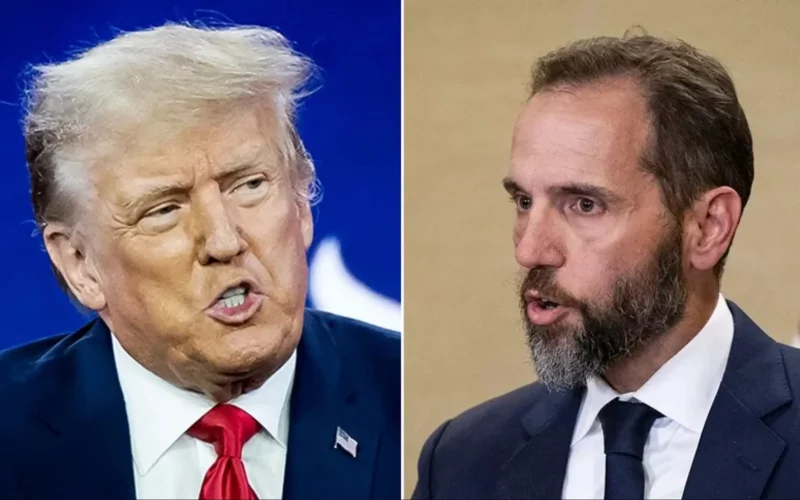On Friday, a federal appeals court in Washington, D.C., largely maintained but narrowed the gag order put on former President Donald Trump in his election interference case, barring him from criticizing possible witnesses and prosecutors.
Critically, it allows Donald Trump to legally criticize Special Prosecutor Jack Smith.
“We agree with the district court that some aspects of Mr. Trump’s public statements pose a significant and imminent threat to the fair and orderly adjudication of the ongoing criminal proceeding, warranting a speech-constraining protective order,” the appeals court ruled. “The district court’s order, however, sweeps in more protected speech than is necessary. For that reason, we affirm the district court’s order in part and vacate it in part.”
The gag order prohibits Trump and his attorneys from making “public statements about known or reasonably foreseeable witnesses concerning their potential participation in the investigation or in this criminal proceeding.”
It also affirmed the provision of the order that barred Trump and his lawyers from making public statements regarding the case’s lawyers, court personnel, special counsel personnel, or their family members. Special counsel Jack Smith is the one exception. According to the appeals court, the injunction “should not have restricted speech about the Special Counsel himself.”
As pointed out by legal analyst CryptoLawyer, the D.C. Court of Appeals struck down the gag order provision as it pertains to Jack Smith.
D.C. Court of Appeals strikes down Trump’s gag order as it pertains to Jack Smith.
Upholds the gag order as to potential witnesses. ? https://t.co/bBHa84ov3q
— CryptoLawyer (@CryptoLawyerz) December 8, 2023
But the court also decided that Trump “does not have an unlimited right to speak.”
“We do not allow such an order lightly,” U.S. Circuit Judge Patricia Millett wrote for the three-judge panel. “Mr. Trump is a former President and current candidate for the presidency, and there is a strong public interest in what he has to say. But Mr. Trump is also an indicted criminal defendant, and he must stand trial in a courtroom under the same procedures that govern all other criminal defendants. That is what the rule of law means.”
The judge also seemed doubtful of one of Trump’s proposed alternatives, which was to postpone his trial until after the presidential election.
“Delaying the trial date until after the election, as Mr. Trump proposes, would be counterproductive, create perverse incentives, and unreasonably burden the judicial process,” the ruling said.
This is breaking news. It will be updated as more information is forthcoming.

